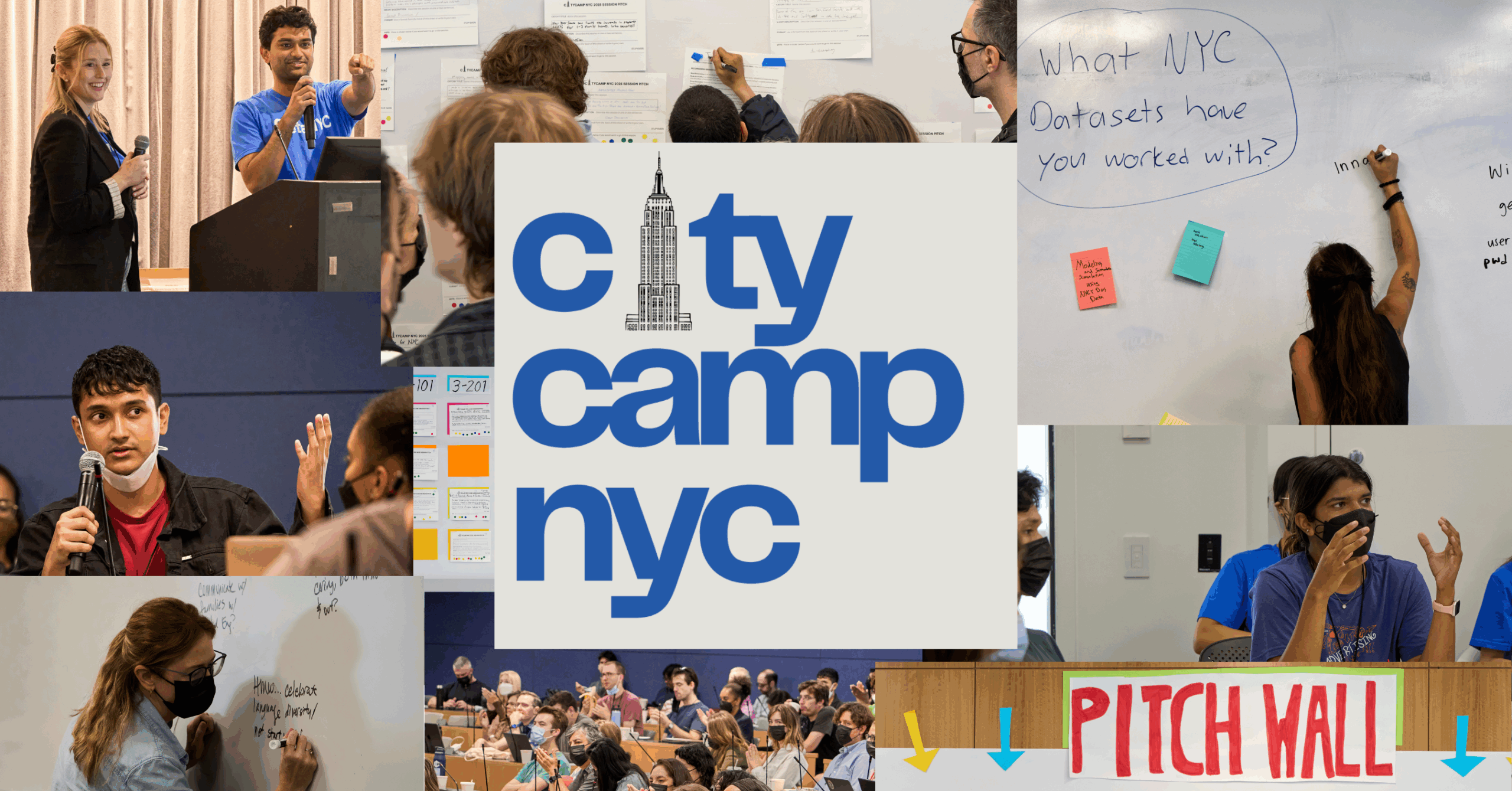Intro
On Saturday, September 6, 2025, over 200 people gathered at CUNY School of Law for CityCamp NYC, for a day built by the community, for the community. In the spirit of an unconference, participants pitched ideas, set the agenda, and filled the rooms with conversations about technology, civil society, government operations, equity, and the future of New York City. Together, we explored how to make NYC work better for everyone, from grassroots organizing and digital tools to public policy and civic engagement.
Why it matters: CityCamp NYC wasn’t just about tech and tools, it was about collectively building community and networks to reimagine the future of the city we live in
Thank You Sponsors, Partners, and Volunteers!
A special Thank You to the sponsors and partners whose contributions made CityCamp NYC possible!
Sponsors
Partners
Volunteers – we could not have done it without you!
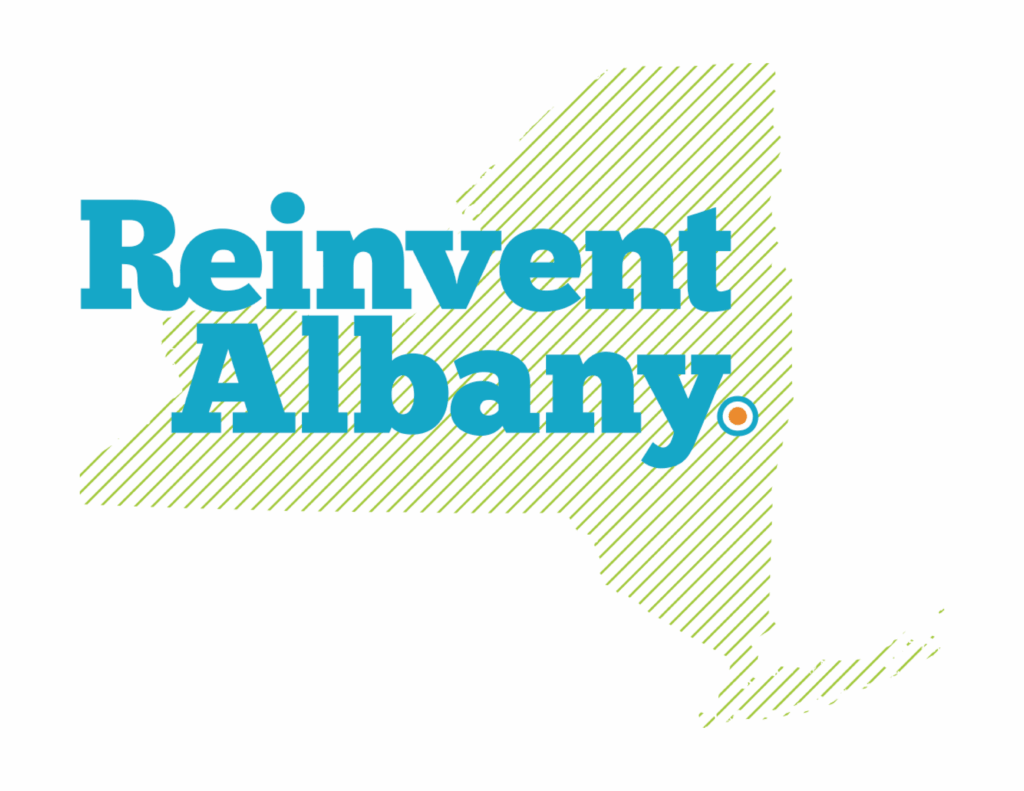
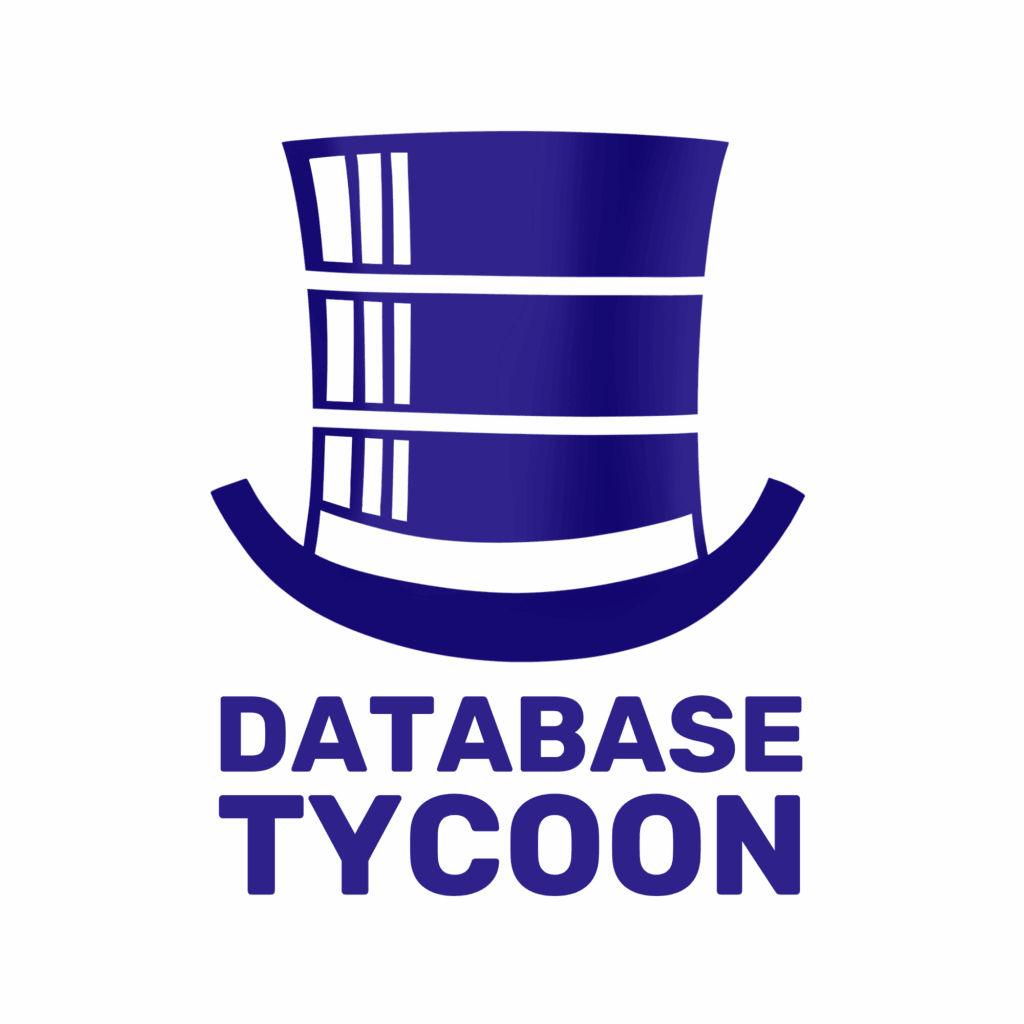
A Community Assembles
From the start, the focus was clear: this was a day to learn from each other.
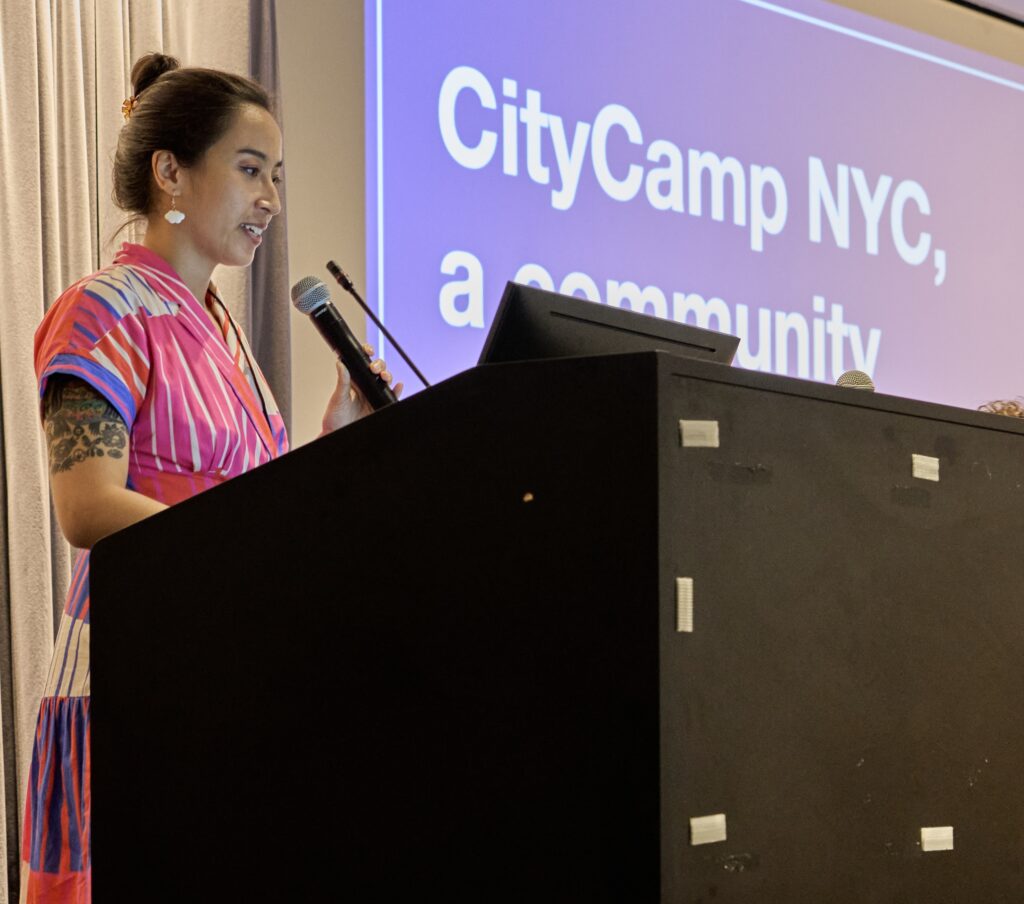
Jazzy Smith, BetaNYC’s Chief of Staff, opened with a reminder that “community building and democracy are now more important than ever…this is one of the moments where we can come together and create plans on what we want to see in the future. Our goal is always to set the agenda for opportunities for improvement and to continue to grow our community.”
Noel Hidalgo, BetaNYC’s Executive Director and elder-at-large in the NYC Public Interest Tech community, traced CityCamp NYC’s roots back to the early open government meetups. “We started back in 2008 as an Open Government meetup…most of our work really focused on Unconferences and using Open Space models on an annual basis to bring the community together and discuss policy and opportunity,” Noel said.
Noel also set the stage for what we wanted to accomplish as a community. “For those of you who have not come to an unconference, there are three core goals. One is to convene community members and to share civic insights and ideas. Two, discuss the processes and projects that will require further action…and the third is to foster formal and informal communities of practice, advocacy, and action, so that we can move this community forward.”
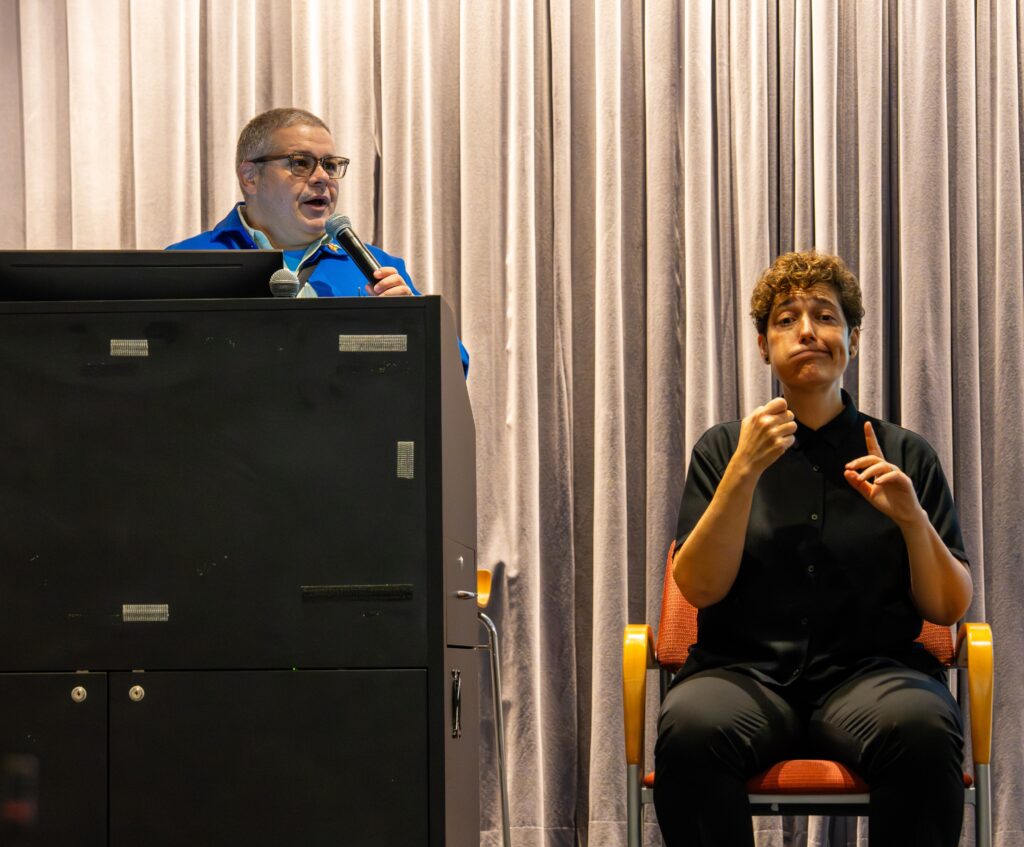
The day wouldn’t have been possible without the active participation of the public interest and civic tech community, full of individuals who want to improve lives in New York City. Thank you for joining us! You can view the CityCamp NYC opening remarks in full on YouTube.
Thanks to Governor Kathy Hochul and the NY ConnectAll Program, BetaNYC shared that it has produced its first Introducing NY Open Data class in American Sign Language! You can view the Intro to New York City and State Open Data In American Sign Language (ASL) class on YouTube.
The Day in Action
After the opening remarks, attendees pitched session ideas ranging from street safety to digital equity, and the community voted on these pitches using our Pitch Wall (see pictures below!) to decide the scheduled sessions for the day. Ultimately, our civic tech conversations ranged from community-building, data literacy, internet accessibility, food scarcity, prison pipeline reform, affordable housing, voter mobilization, AI implementation, and street safety.
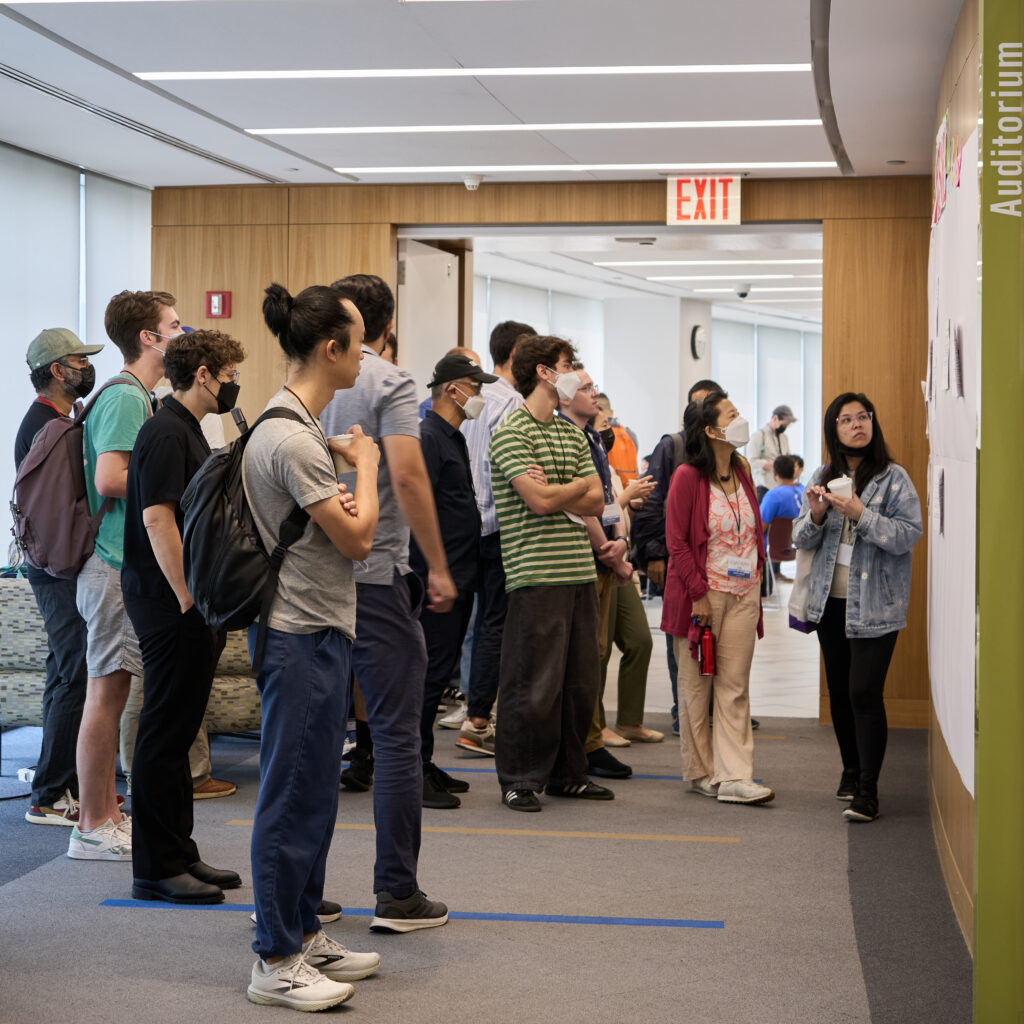
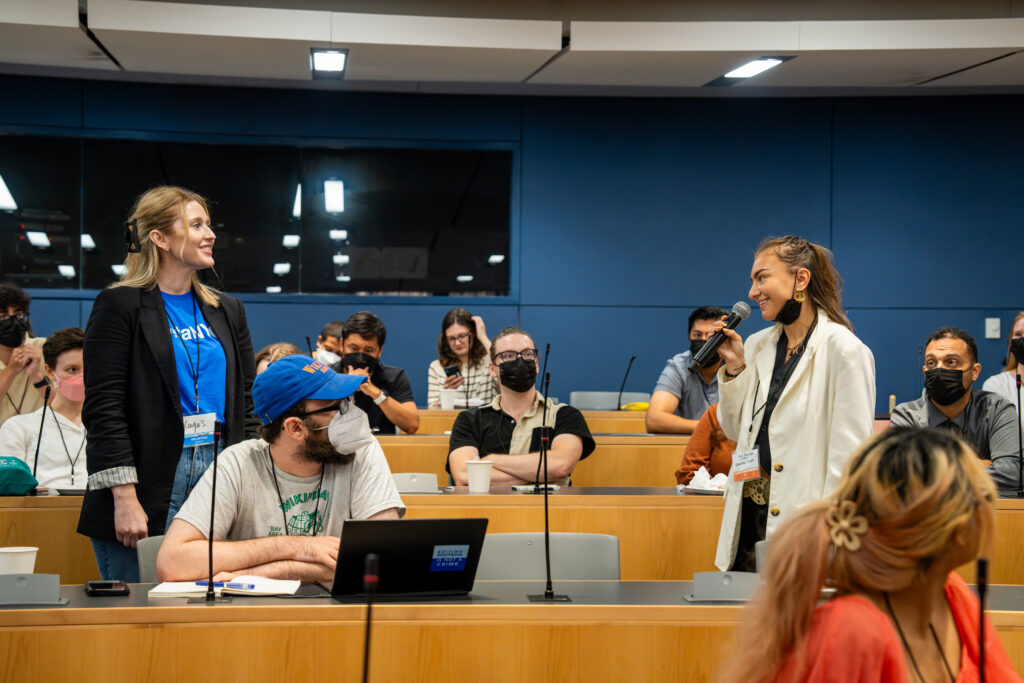
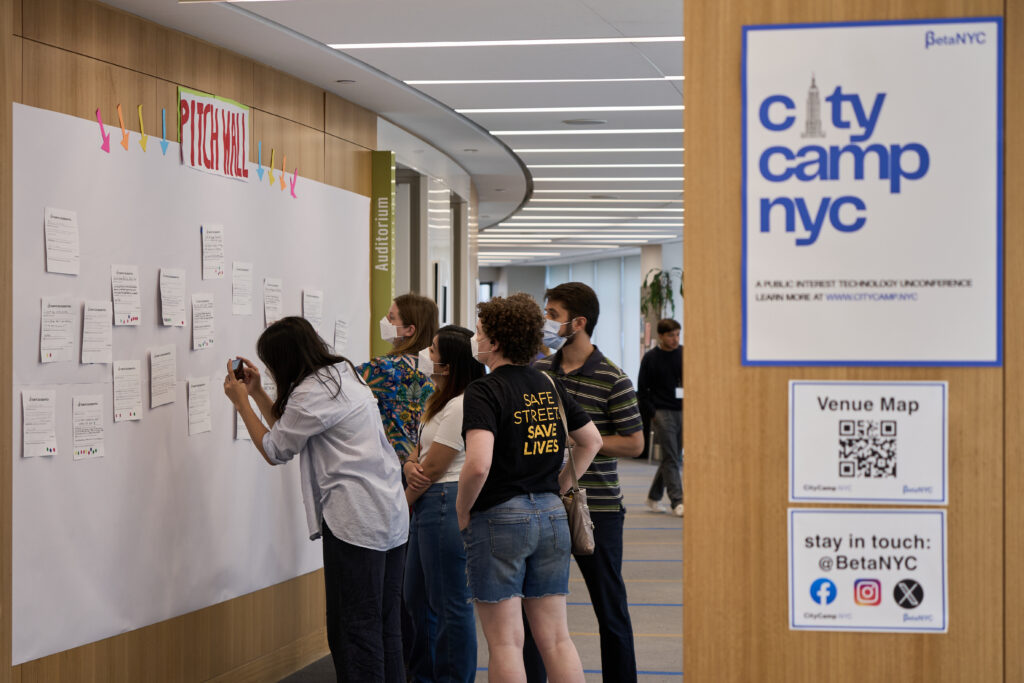
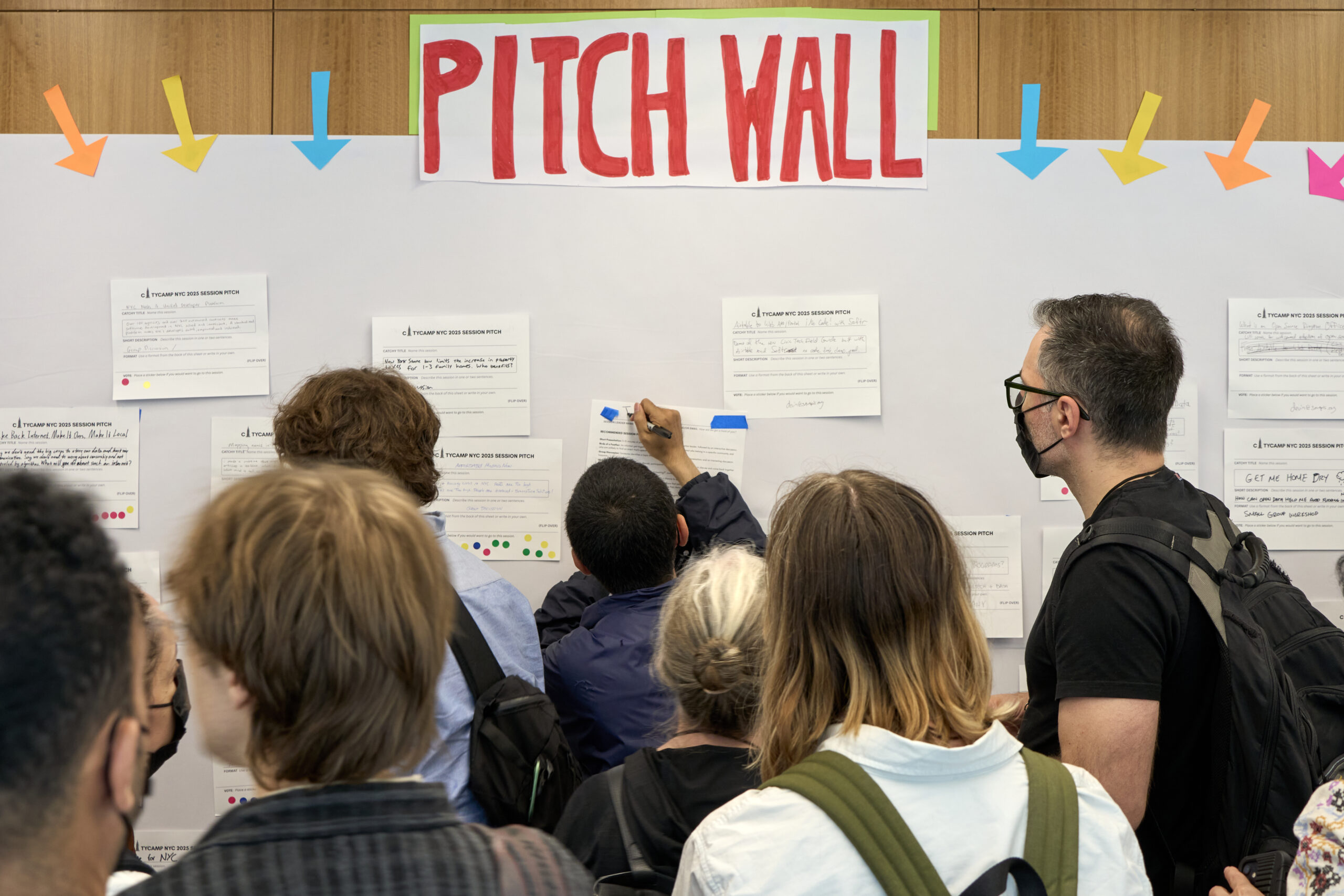
Each session produced notes and ideas captured on the Virtual Board, so the conversations don’t end when CityCamp NYC does. As a disclaimer, the Virtual Board and session notes exist as-is with real-time notes from Session Scribes and participants at CityCamp NYC. Whether you attended CityCamp NYC or not, we encourage you to check out the Virtual Board and continue these conversations through the r/PublicInterestNYC subreddit!
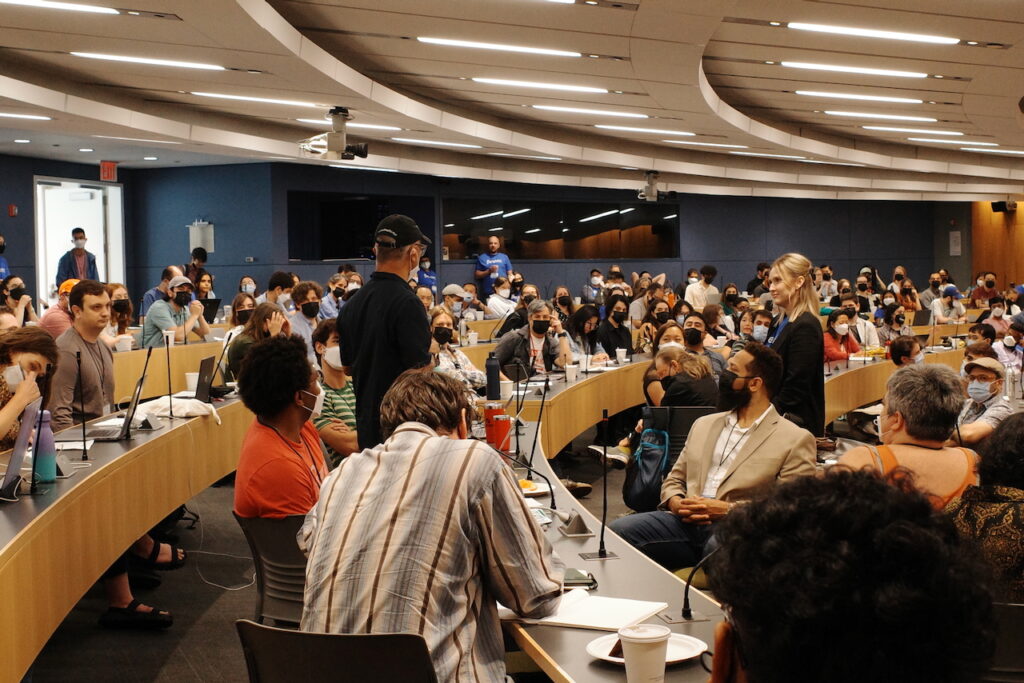
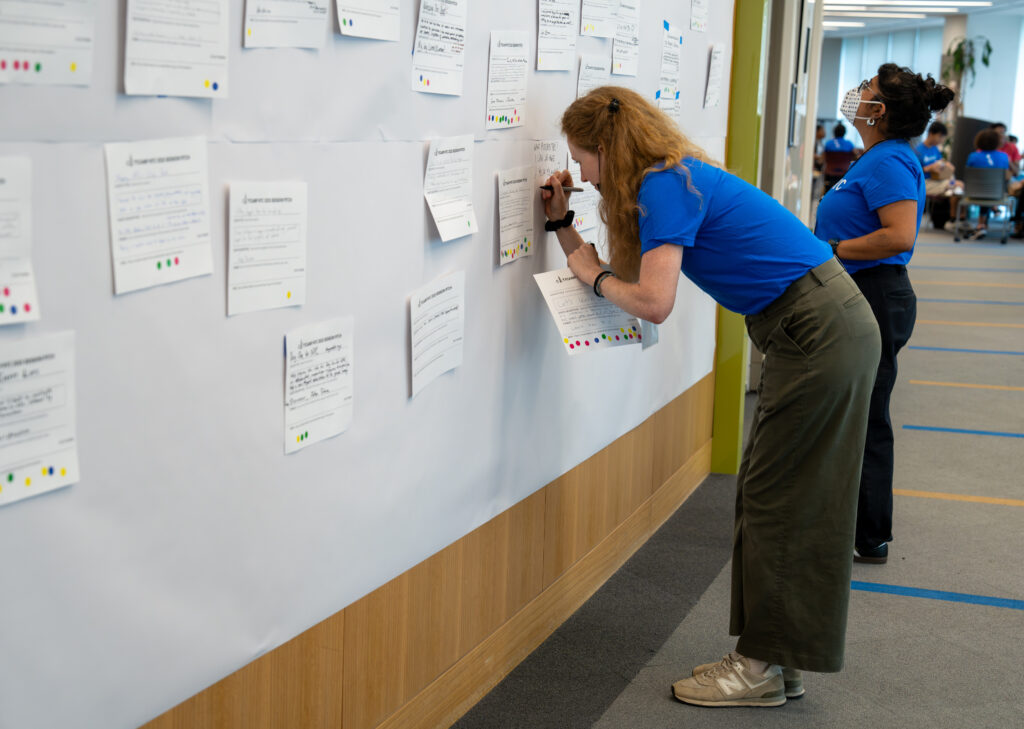
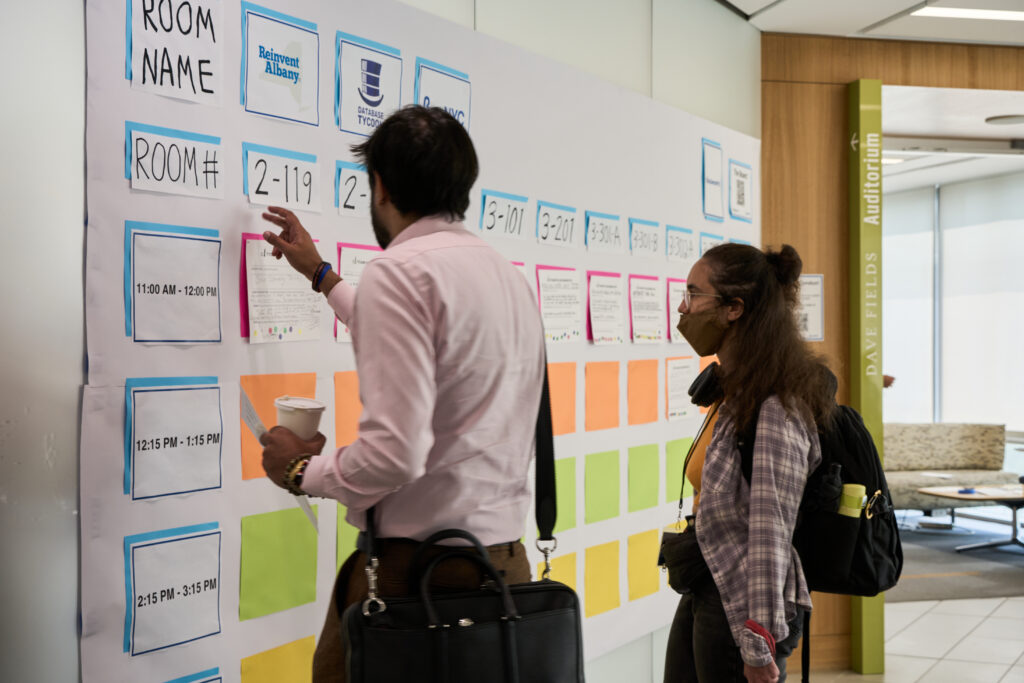
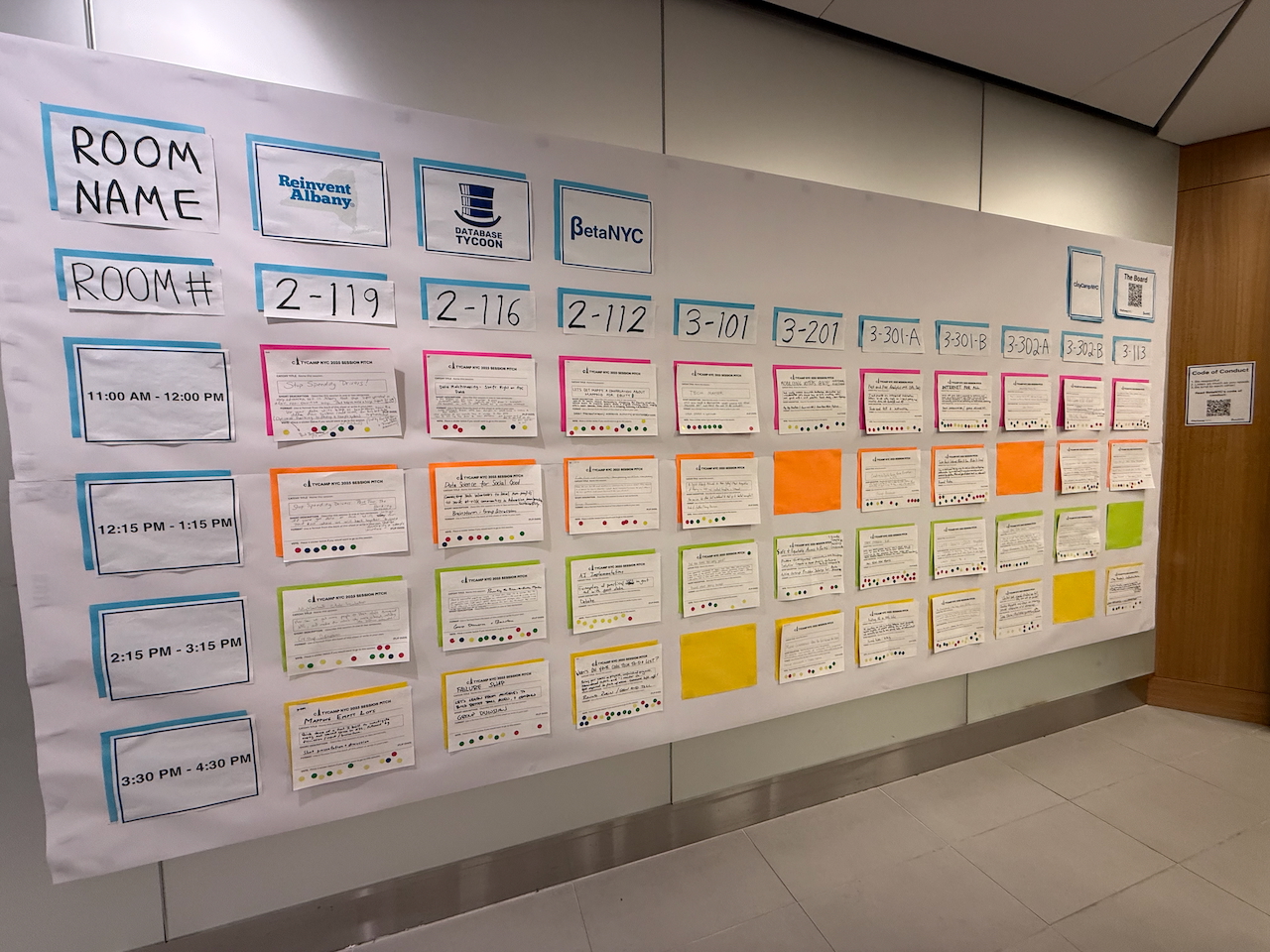
Here are some of the sessions that stood out throughout the day…
BetaNYC in Action
Let’s Get Mapping: A Conversation About Mapping for Equity – led by Dimitri & Naeema
What is the point of a map? The session introduced BetaNYC’s Mapping for Equity project as a way to empower communities to document public resources.
Participants emphasized the need for transparency, community fact-checking, and the power dynamics of decision-making in mapping, while challenges included how to reduce bias and design tools that serve community needs rather than purely collecting data.
“We introduced BetaNYC’s Mapping for Equity initiative and prompted a dynamic discussion about mapping bias, working with community, and mapping the future,” Dimitri said. “I’m immensely proud to be a member of the wonderful team that made this possible, and I’m looking forward to the next time!”
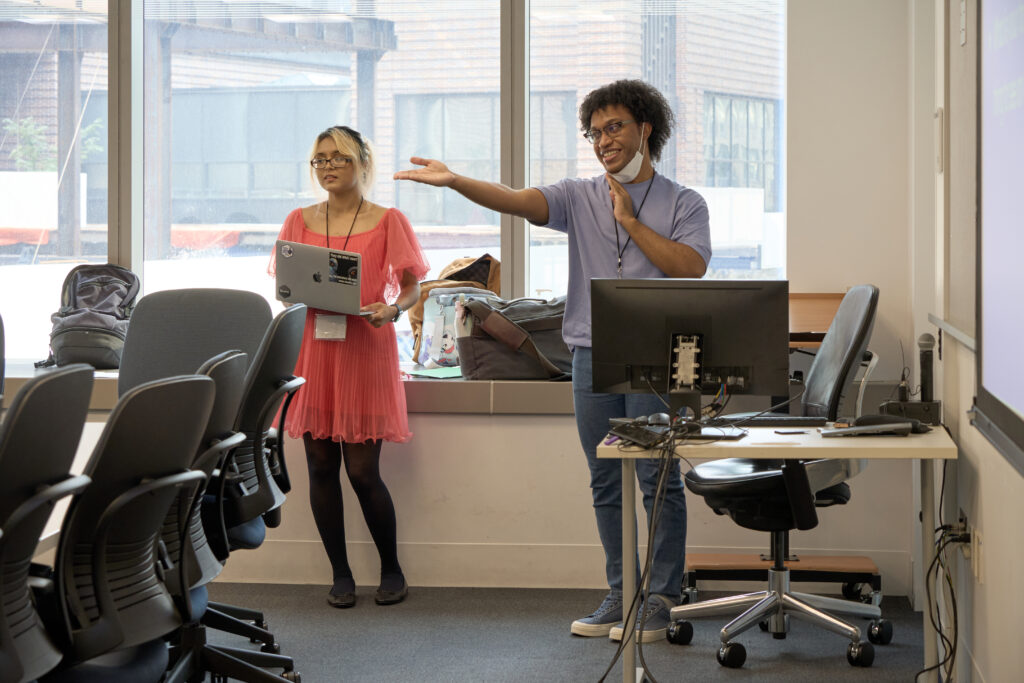
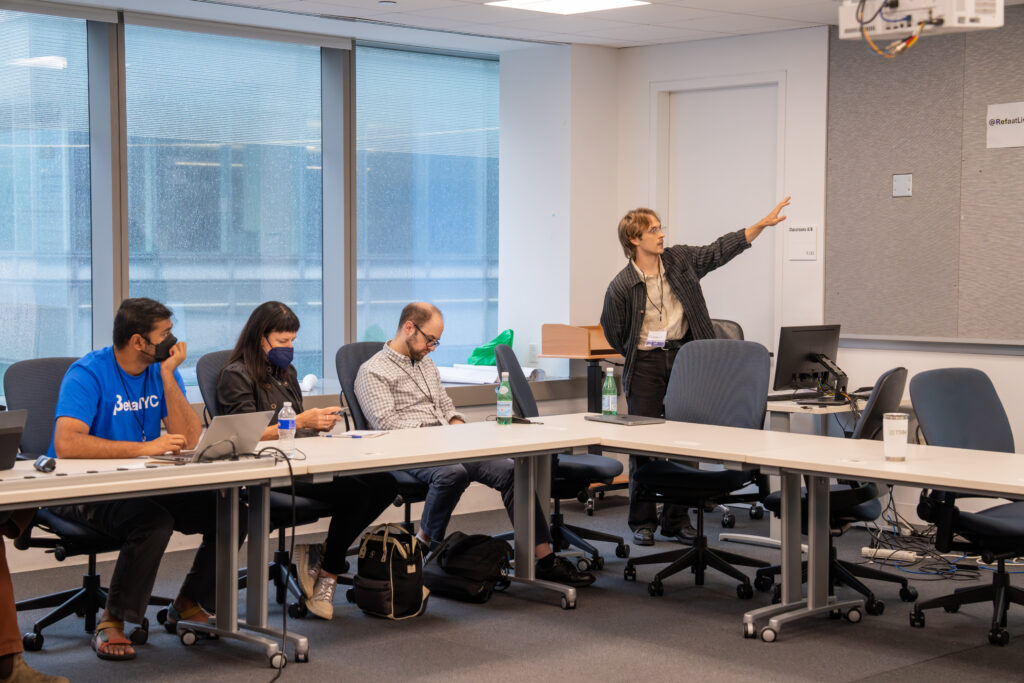
What’s On Your Civic To-Do List – led by Andrew
The session highlighted people’s ongoing civic tech projects, including BetaNYC’s ongoing work to rebuild BoardStat with updated infrastructure to better serve community boards, a film and TV permit data tool to reveal industry impacts on neighborhoods, and Fomo.city, an emerging community-driven platform to map local events, with potential to expand into collaborative event organizing.
Code, Care, and Community: Strengthening our PiTech Storytelling – led by Gabby and Noel
This session kicked off with a simple question to folks in the room: what is community? After sharing thoughts, the consensus was that Community means belonging, care, and collaboration, and that communication in the context of BetaNYC’s weekly newsletter should reflect these values while helping conversations continue beyond BetaNYC events. When examining what people want from BetaNYC’s regular Civic Tech newsletter, the takeaway was that people want human-centered storytelling, datasets and tools from public agencies, and support for students and academics through recognition, credit, and collaborative community projects.
Session Highlights from the Community
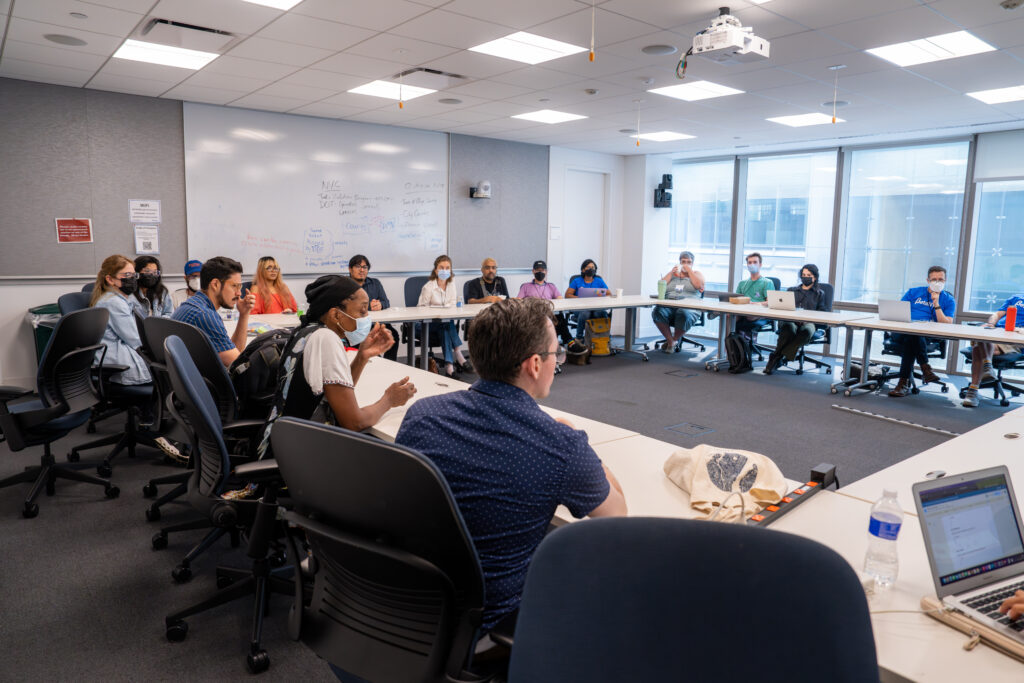
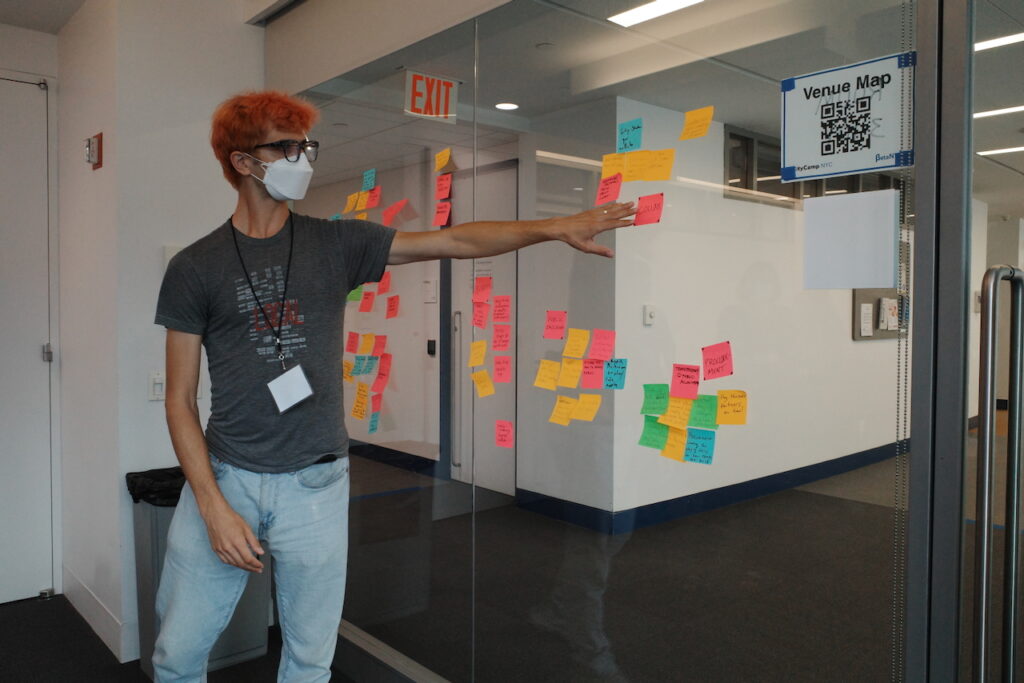
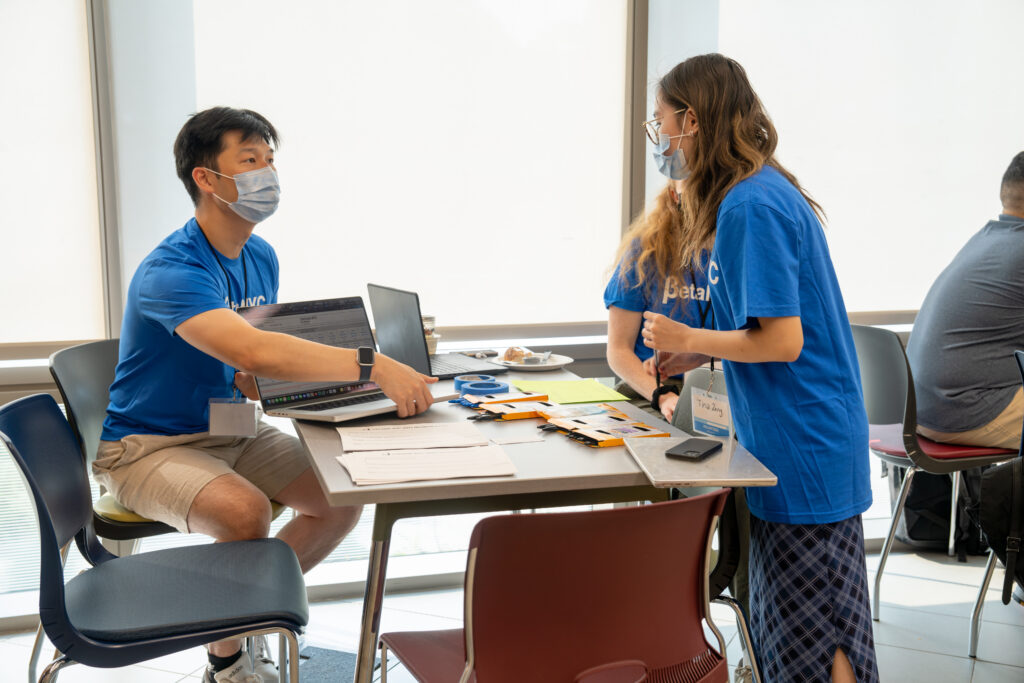
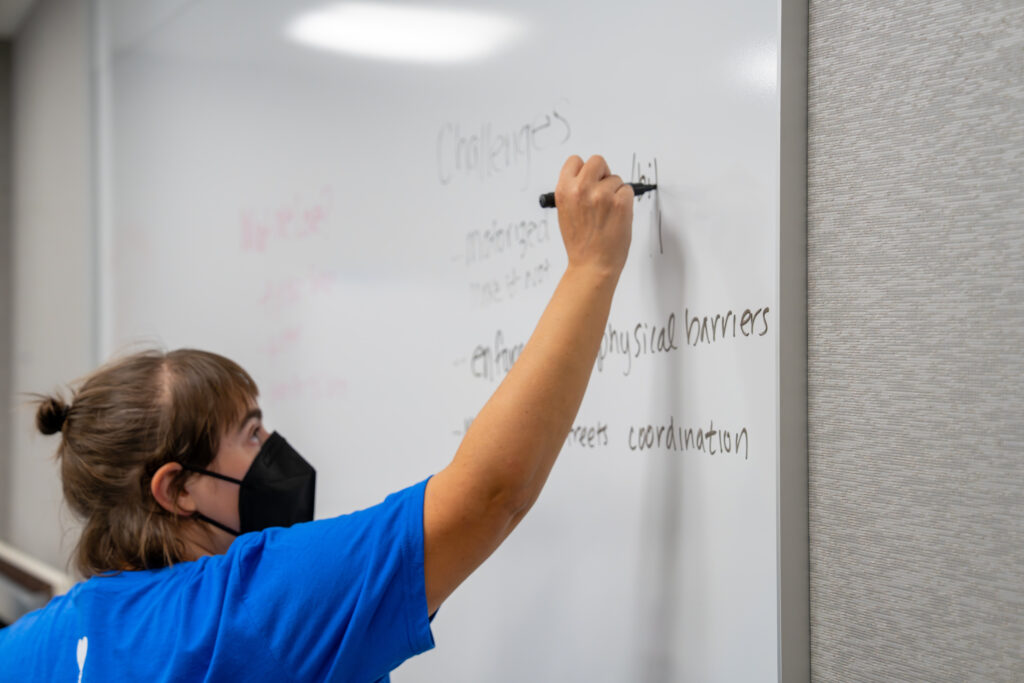
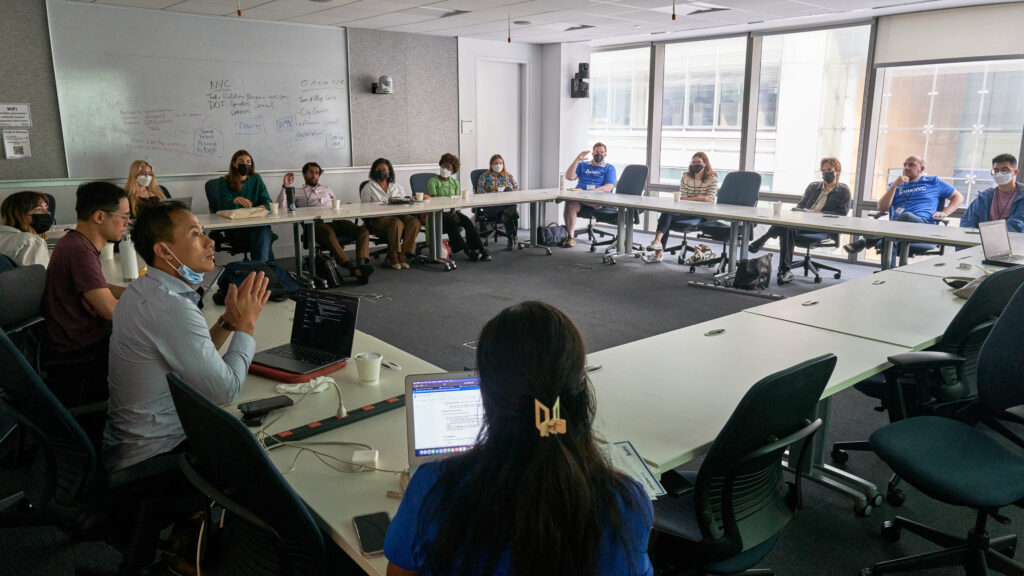
Stop Speeding Drivers! Led by Families for Safe Streets
Part 1 focused on creating a checklist of technical requirements, and matching where the speeder data comes from within different New York agencies and municipalities and discussing how to put together a mechanism to standardize it.
Part 2 was a deeper dive and mini hacking session, where folks were tasked with making an example project/use case using NYC public data of setting a threshold criteria with speed violation data, and developing a simple program mechanism that creates a notification for individuals found to meet the criteria.
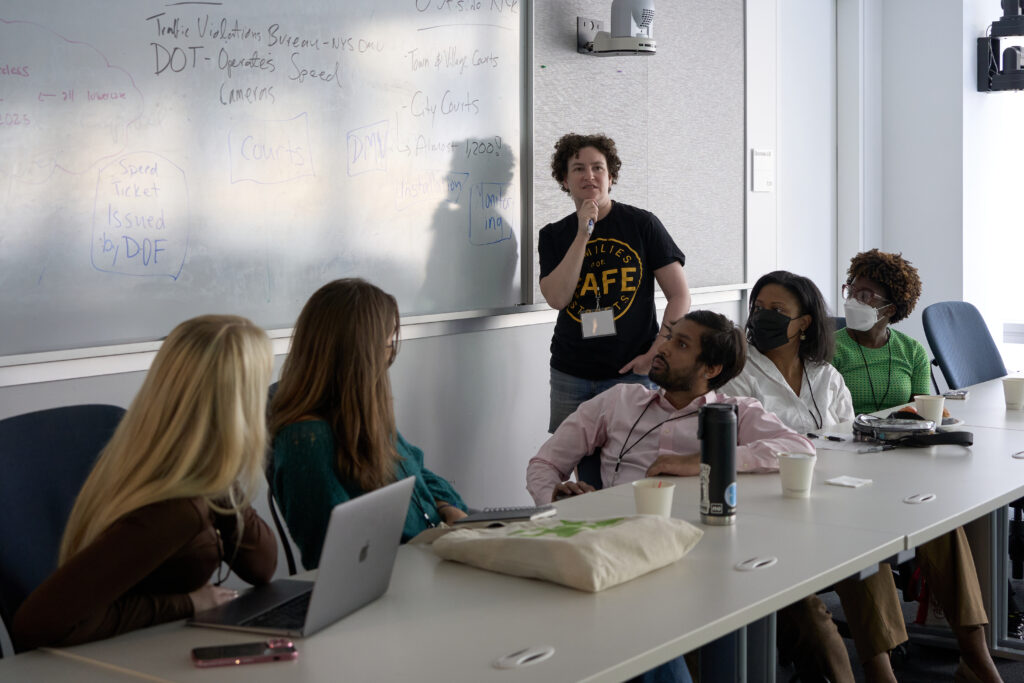
Tech Mayor: What should the next mayor do with technology?
The conversation surrounded Open Source Data and Public-Private Collaboration and how to facilitate collaboration between both government-private, inter-government agencies, and the general public.
Public Library Wiki Kiosk
The Chair of Wikimedia NYC proposed a kiosk program to utilize the community and sense of togetherness that libraries have; the kiosk can be used as a way to access information and data from the wider internet and bridge the divide between multilingual communities while keeping information and knowledge that older residents have alive for younger generations.
Internet For All
The DSA Tech Action Working Group led the conversation about Internet for All with several non-profits and government workers in the mix; Key Takeaways included that Mesh is an accessible lever to expand the internet, and that the state can work with small groups to build a public internet with accountability mechanisms. The group discussed how organizing tactics are essential to continue building strong coalitions, policy, and executing the Internet for All campaign.
Digital Solidarity Network For Housing
Discussion surrounded building a database of litigation efforts against landlords for greater transparency, including making records like historic rent prices, past lawsuits, and DHCR complaints more accessible to the public to empower tenants to advocate for themselves and their communities. The group recognized that tenants often lack the financial means to sustain legal action or advocacy, and there is a need for collective approaches and supportive networks, since fear of retaliation from landlords often prevents tenants from speaking out.
Preventing the Prison-to-Shelter Pipeline
Understanding the experience for those coming out of prison/incarceration, and reintegrating with the community, acknowledging the difficulties these individuals face in finding affordable housing and getting back on their feet. The group Proposal: Set up a technical solution with reentry services, starting from the day that a person is incarcerated, that would include housing, employment options, access to an ID, healthcare, and benefits.
AI Implementation
This session broadly discussed ways that artificial intelligence can be implemented, how different participants use AI, what they use it for, and where it makes sense to use. The conversation weighed considerations between AI for efficient coding as well as the pitfalls with morality and bias. The conversation highlighted that discussions and practical knowledge about AI appear to be very active in the private software/development space, but not as much in the GovTech space.
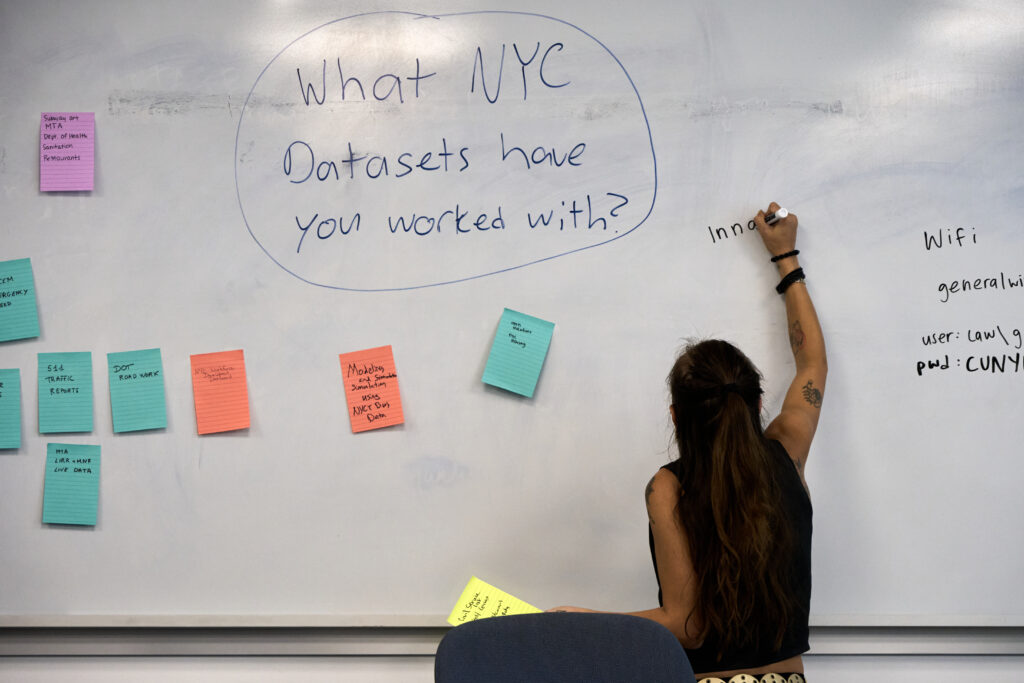
Data Matchmaking: Swipe right on NYC Data led by Database Tycoon
One of the Sponsors of CityCamp NYC, Database Tycoon focused on the questions that people want to answer with data and the wishlist items that would aid in data analysis. From there, the room converged on challenges like a need for improved geographic data and uniformity of data across different agencies and datasets. Check out Database Tycoon’s full recap & key takeaways in their blog post.
The Virtual Board
A standing record of the public notes taken in each session on the day.
CityCamp NYC by the Numbers
205 attendees
120 Organizations
43 volunteers
13 BetaNYC Associate Board Members
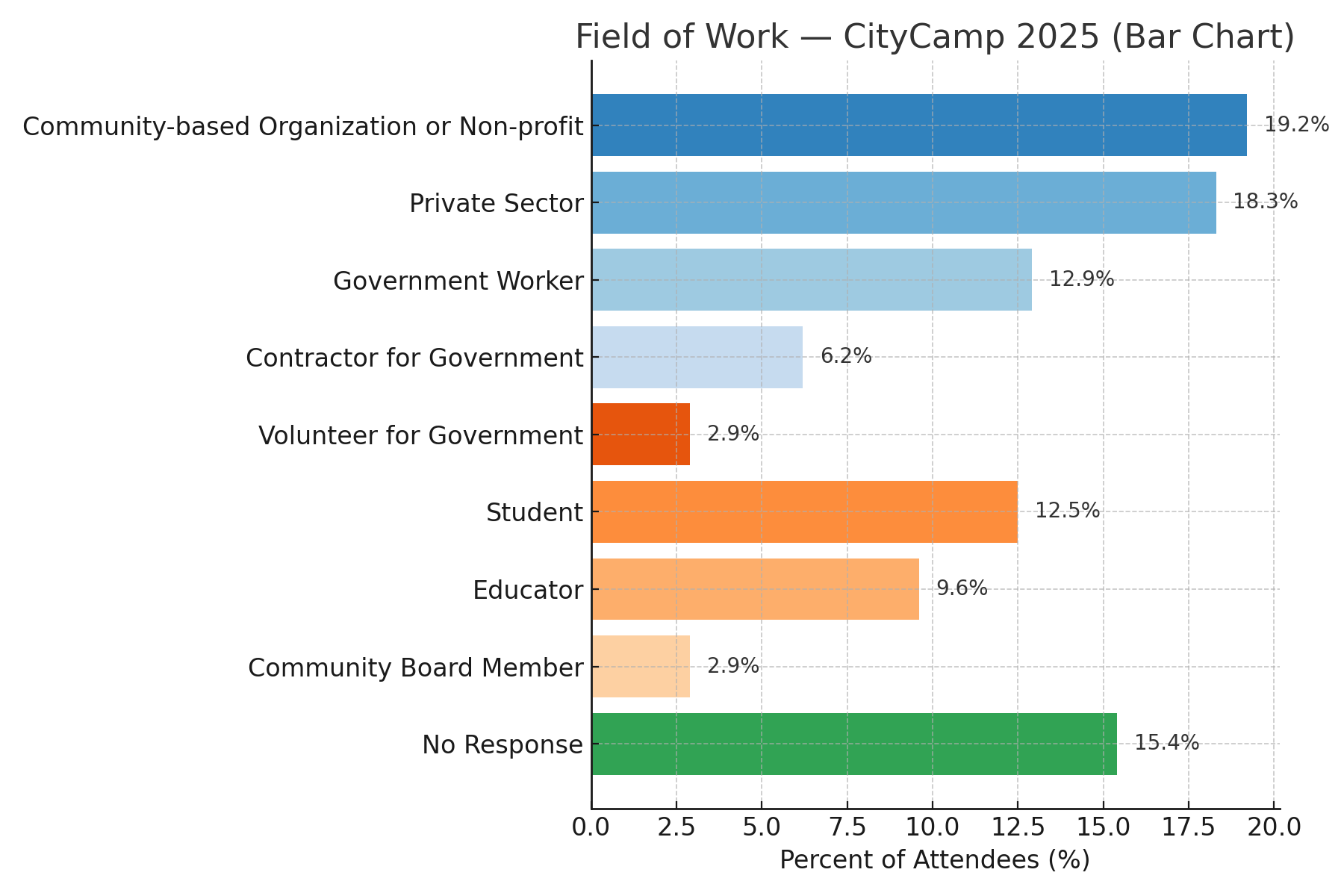
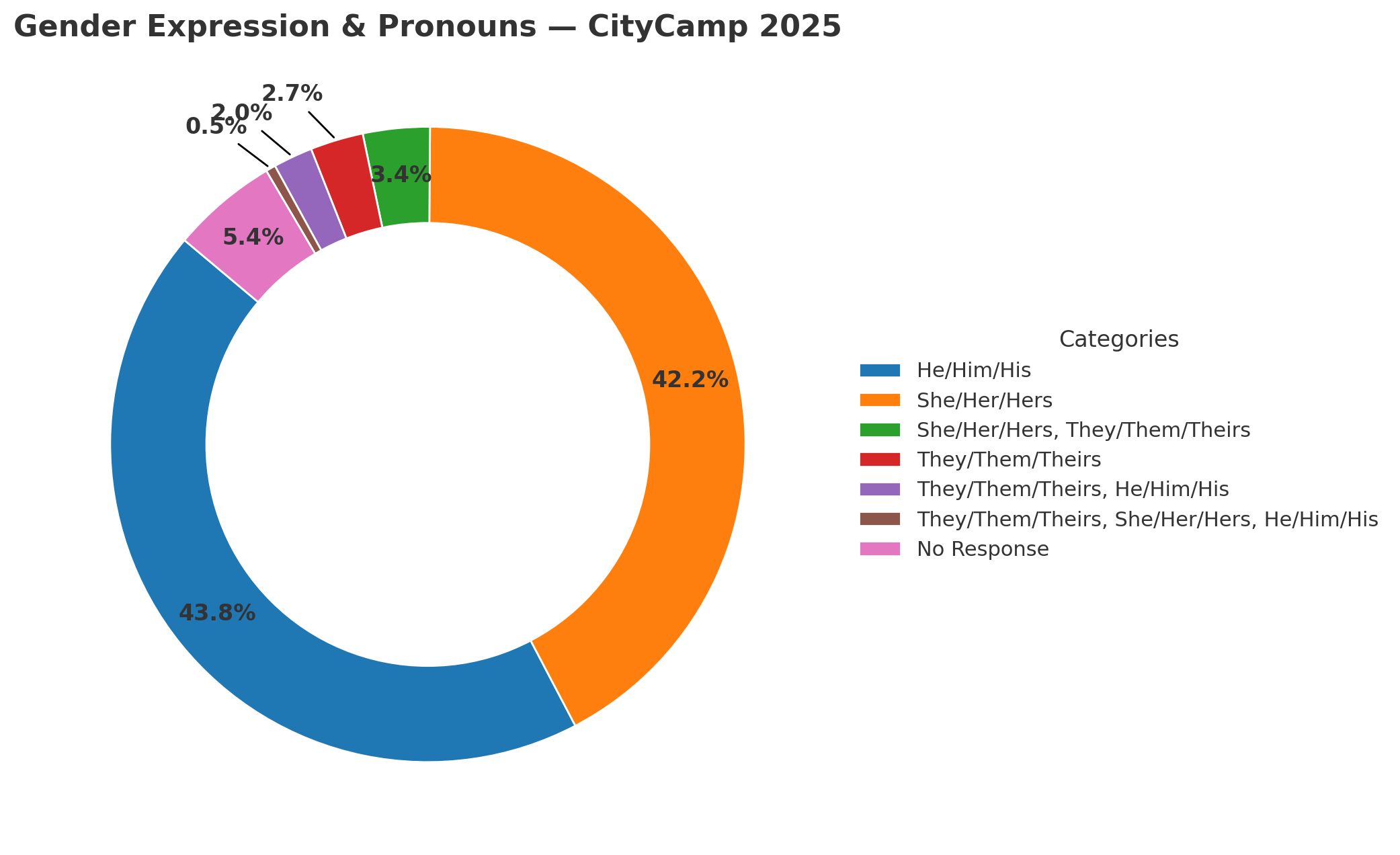
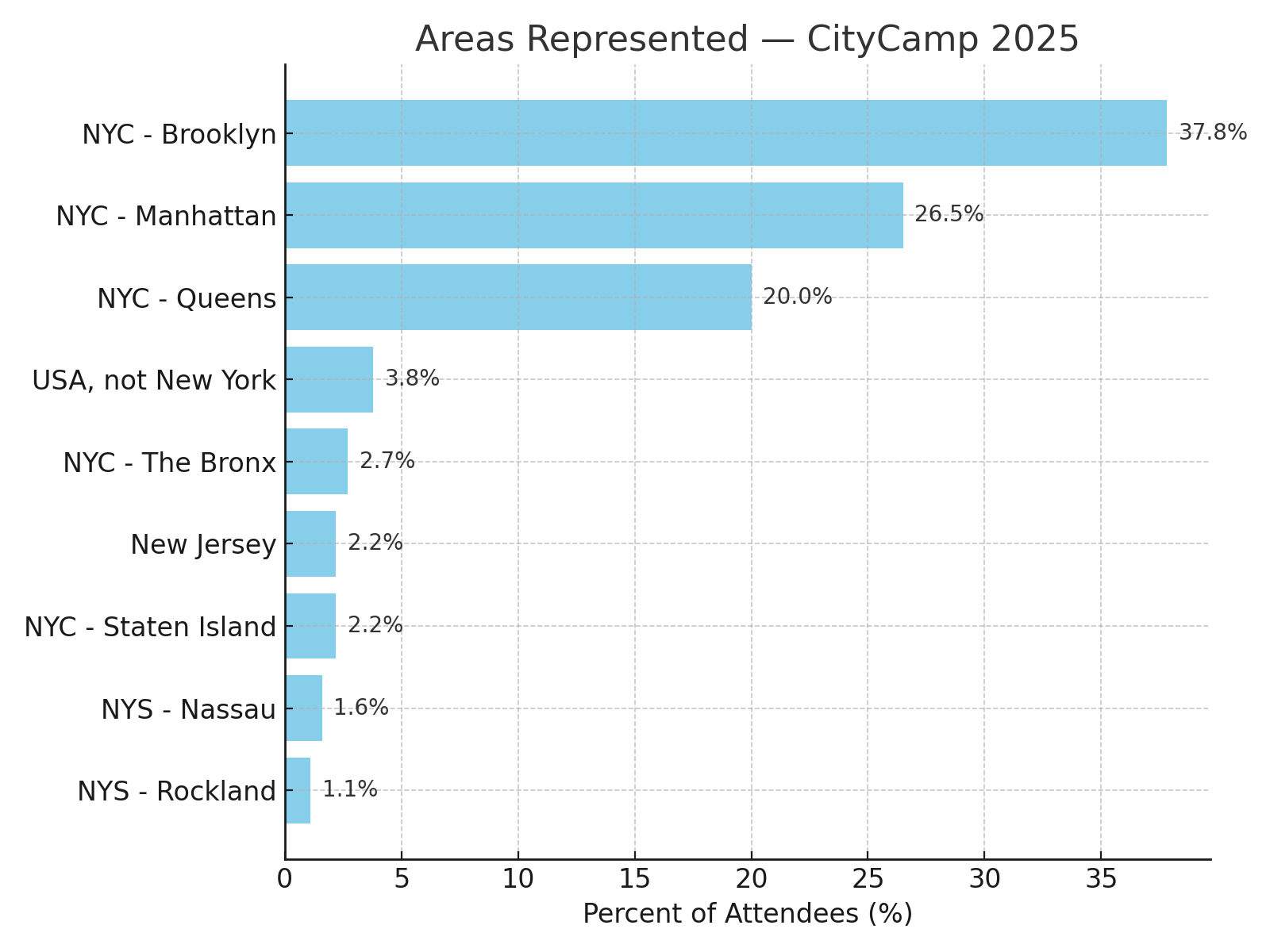
Celebrating Civic Innovators
CityCamp NYC was capped off with an after-party at The Greats of Craft in Long Island City, where we celebrated a successful day and the end of summer with the community. Food was plentiful, drinks flowed, and the room was abuzz with lively conversation in anticipation of the first-ever BetaNYC Civic Innovator Awards.
We celebrated the groups, teams, and organizations shaping a more open, accessible, and equitable NYC. These groups were nominated by the community (AKA you!), and community votes informed BetaNYC’s first-ever People’s Choice Awards.
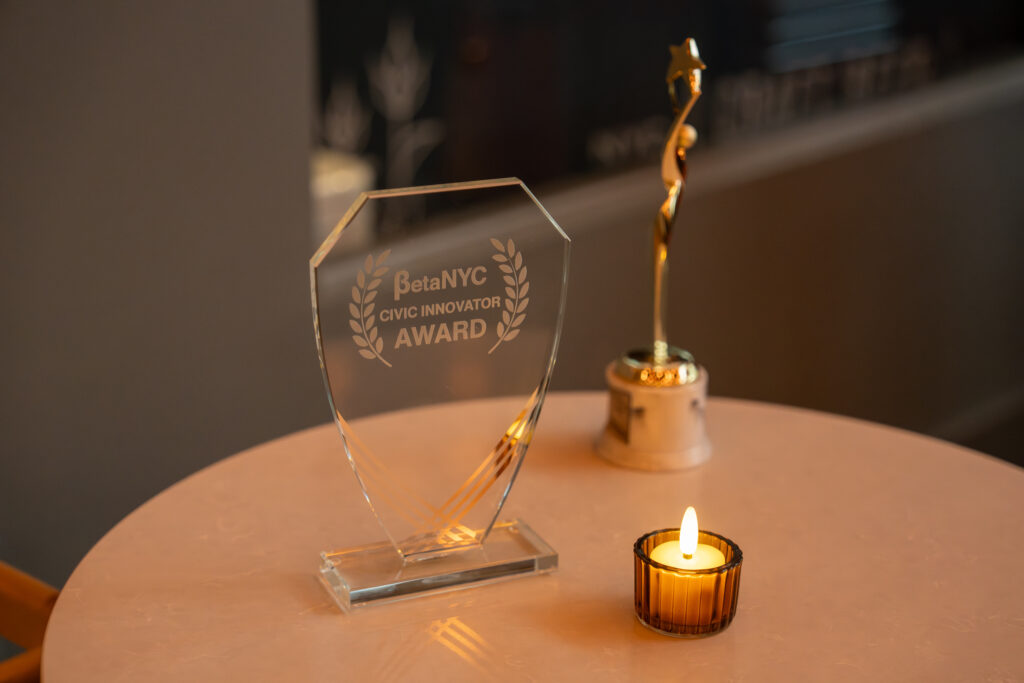
• CUNY Mapping Service – They are some of the best mappers in the U.S.! They’ve developed interactive mapping tools and visualizations that turn raw data into stories about our neighborhoods and our city. By collaborating with government agencies, nonprofits, researchers, and community groups, they help us all see New York more clearly.
• NYC Mesh – A community-run, decentralized mesh network providing open, high-speed internet access across NYC, built and operated by the people it serves. They’ve built something many said couldn’t be done — a decentralized, community-run network delivering open, high-speed internet to thousands of New Yorkers.
• Transit Techies NYC – A meetup group where transit technologists, data enthusiasts, and commuters present and discuss transit‑related tech projects to advance mobility options. This community is shaping the future of transit, one meetup at a time.
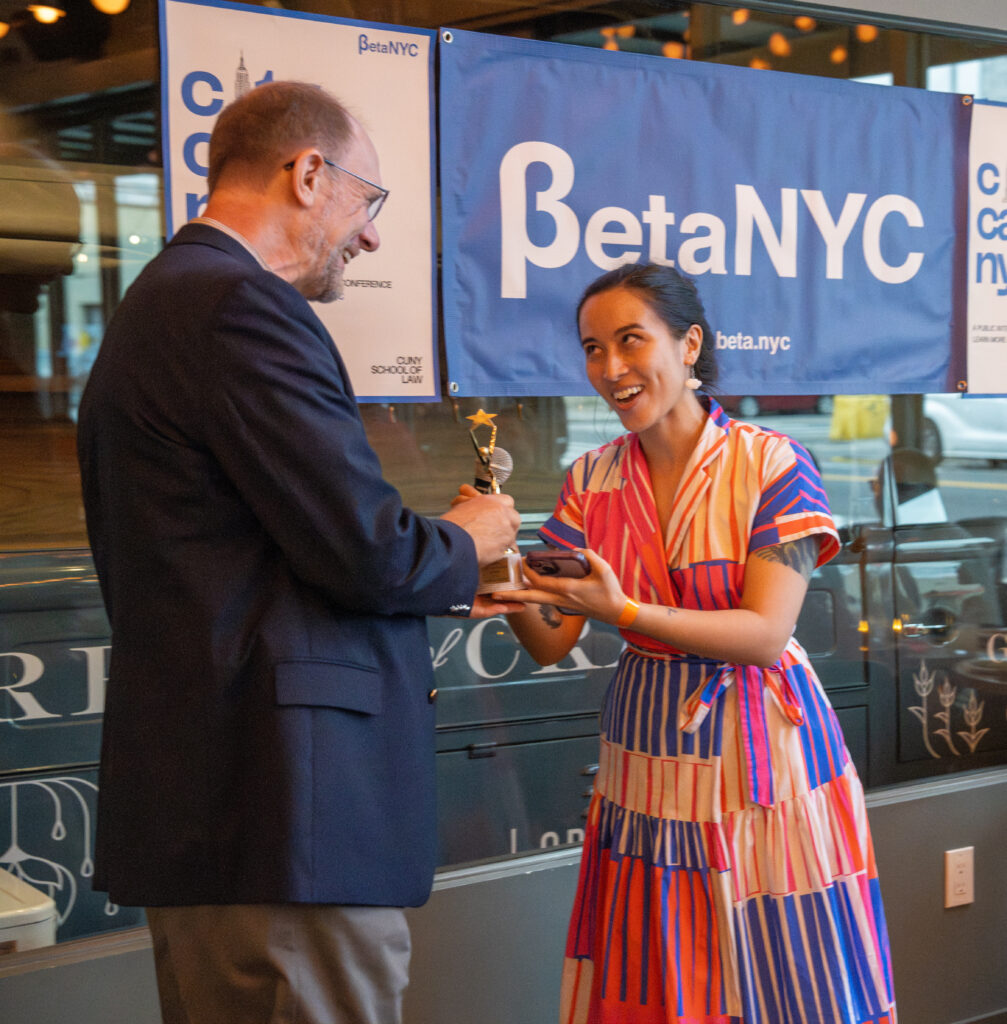
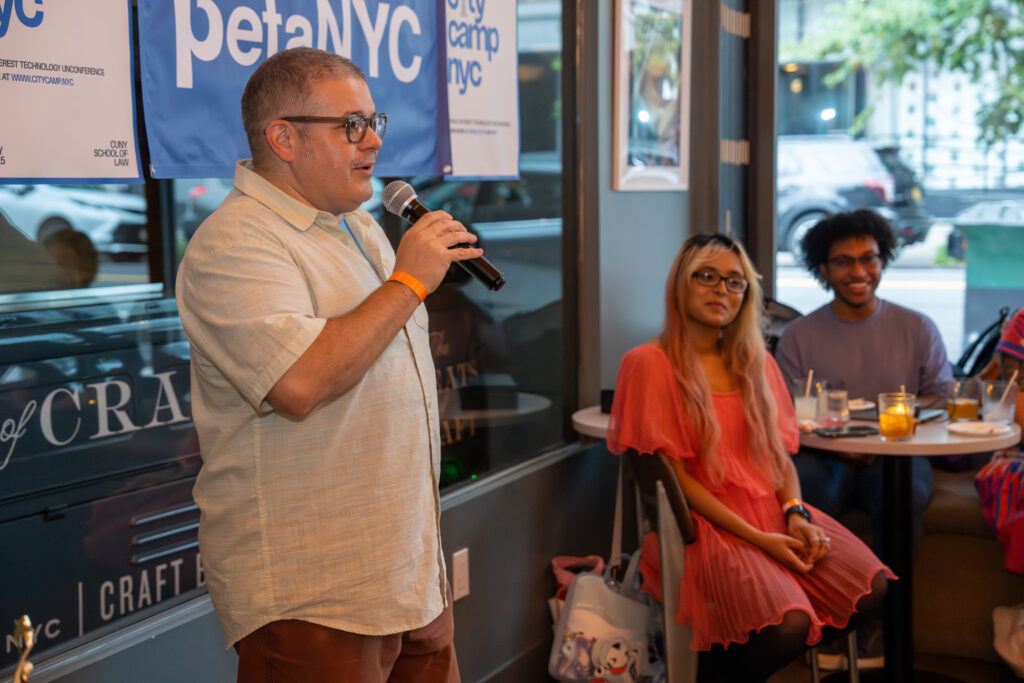
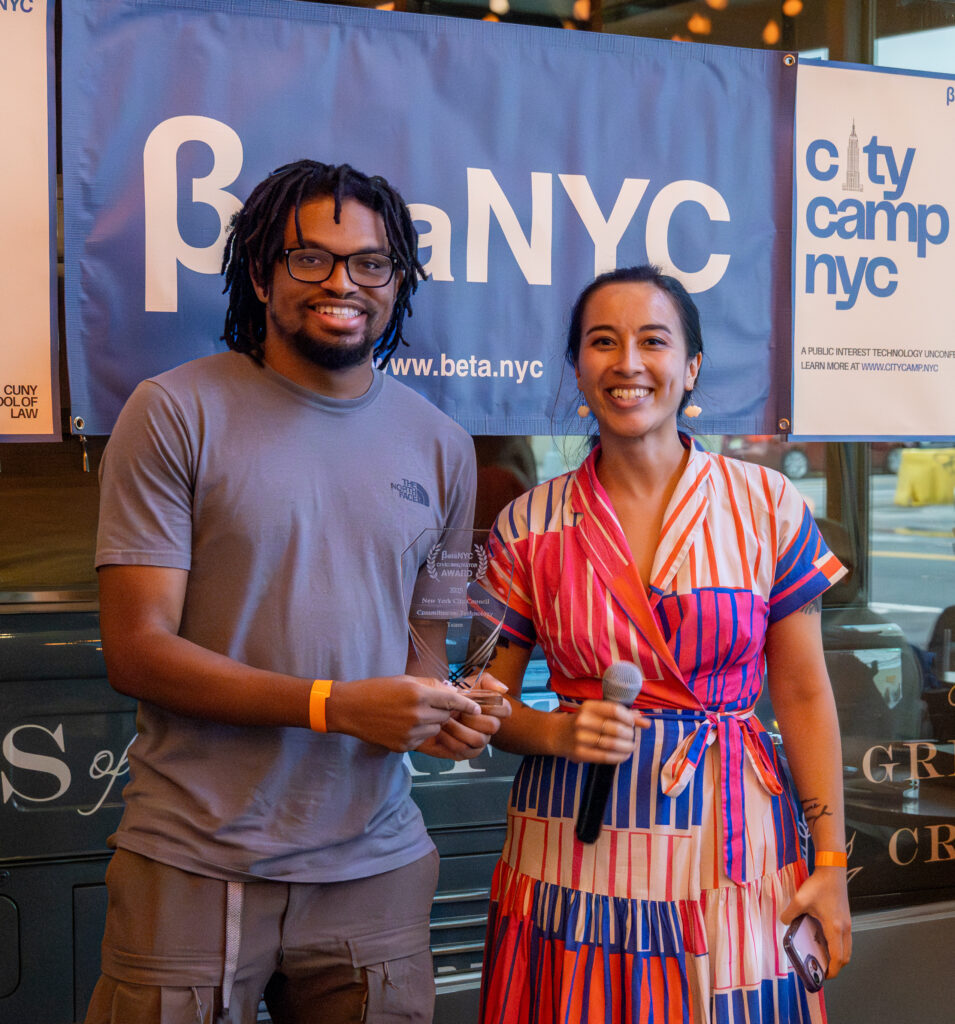
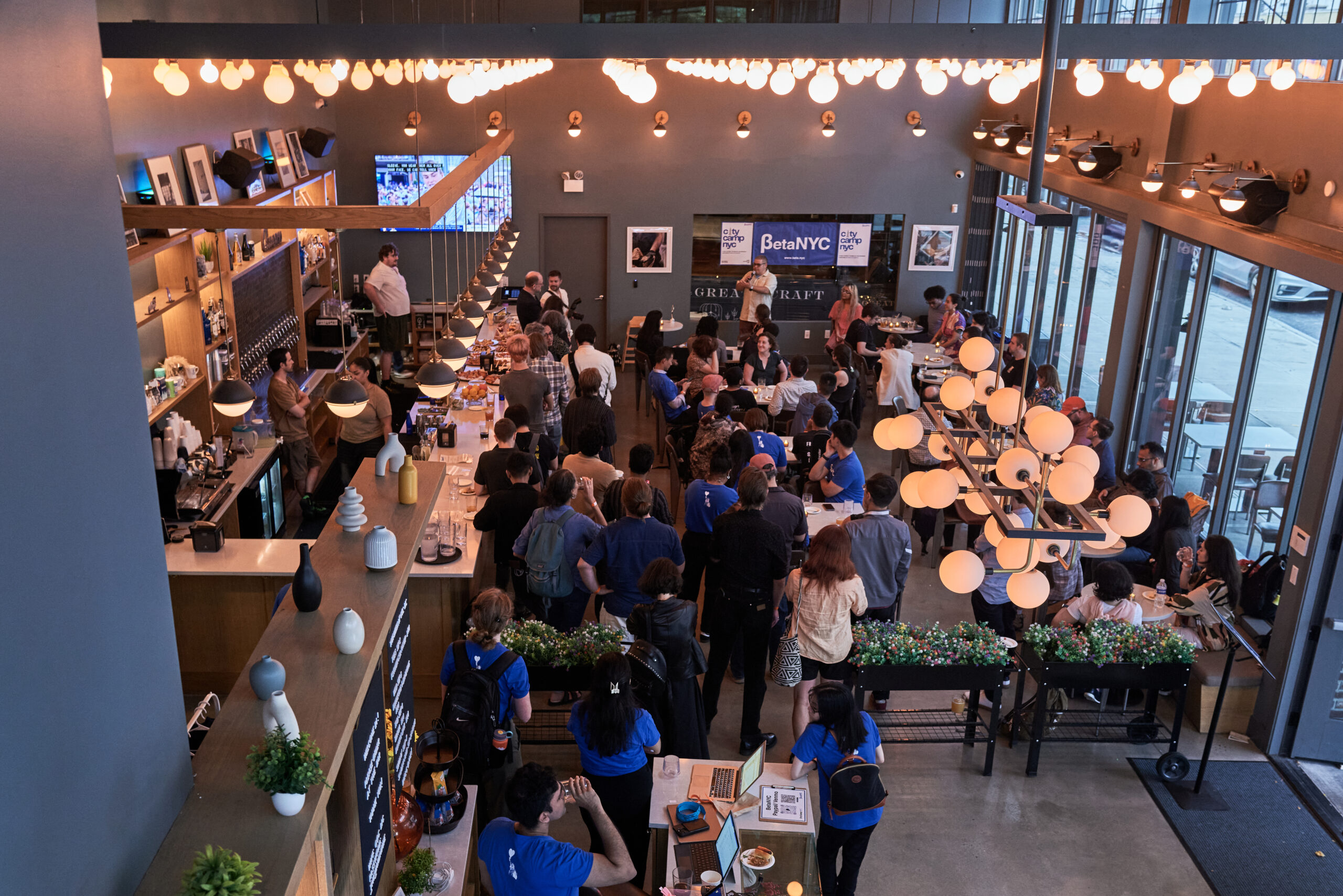
People’s Choice Award
The votes were in and we had a TIE for the People’s Choice Award:
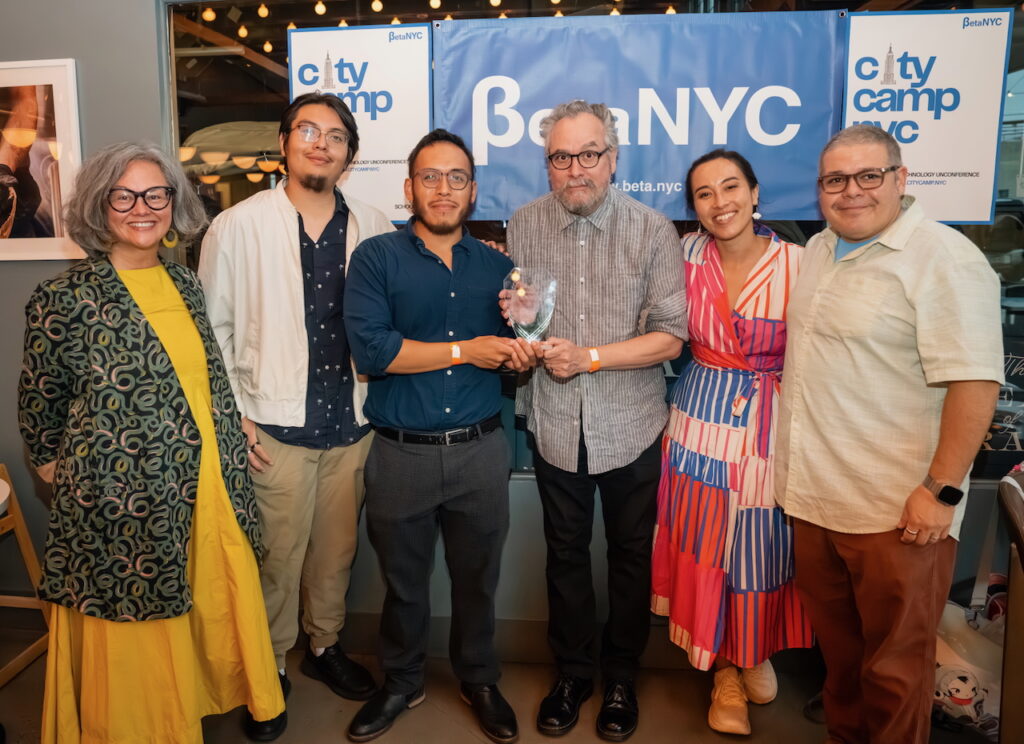
Located in South Williamsburg, the Community Tech Lab at El Puente is a space where community members gain free access to technology, hands-on training, and advocacy for both digital and environmental justice.
They have taken one of the world’s busiest transit systems and made it more transparent than ever before. By publishing performance and service data through the New York State Open Data Portal and building analytics pipelines, the MTA Open Data Team has opened the doors for accountability, innovation, and better transit for all.
Conclusion
The ideas sparked at CityCamp NYC are just the beginning of the conversation, and are the building blocks for the future city we want to live in. By strengthening New York’s Civic and Public Interest Technology community, we’re laying the groundwork for a more transparent, inclusive, and resilient city. We look forward to continuing this momentum next year at Open Data Week and School of Data 2026!
Stay in Touch – We Want to See You at Open Data Week & School of Data 2026
We’re excited for Open Data Week 2026 and can’t wait to see your submissions this Fall for next year’s festival! Open Data Week 2026 will take place from March 22-29, 2026, with School of Data slated for Saturday, March 28. Save the date!
Here’s how you can stay in touch with the NYC Open Data community:
Sign up for announcements from Open Data Week throughout the year, including our call for proposals in the Fall, 2026 festival dates, quarterly Open Data Week meetups, and NYC Open Data’s annual report!
View event recordings and information about next year’s festival at open-data.nyc.
Follow us on social media!
